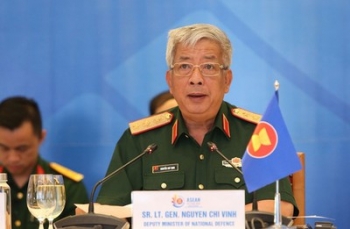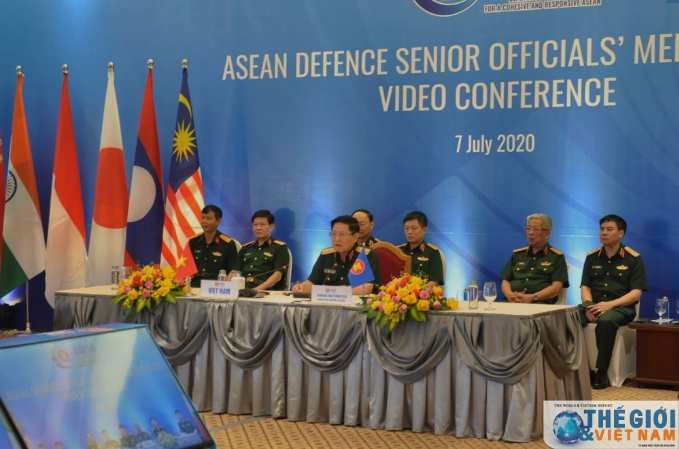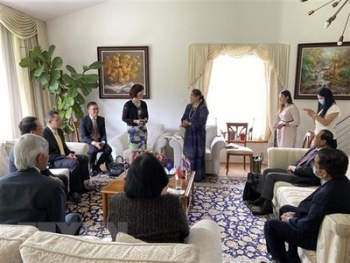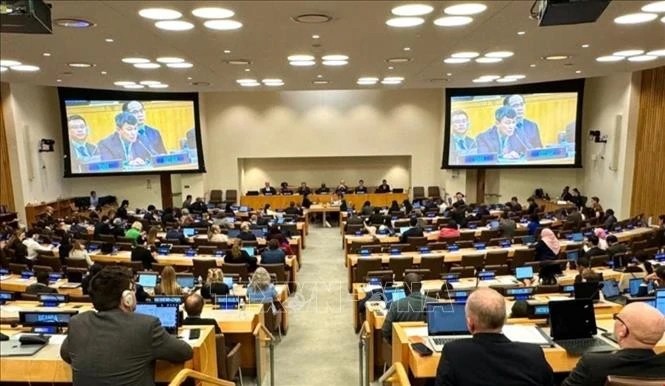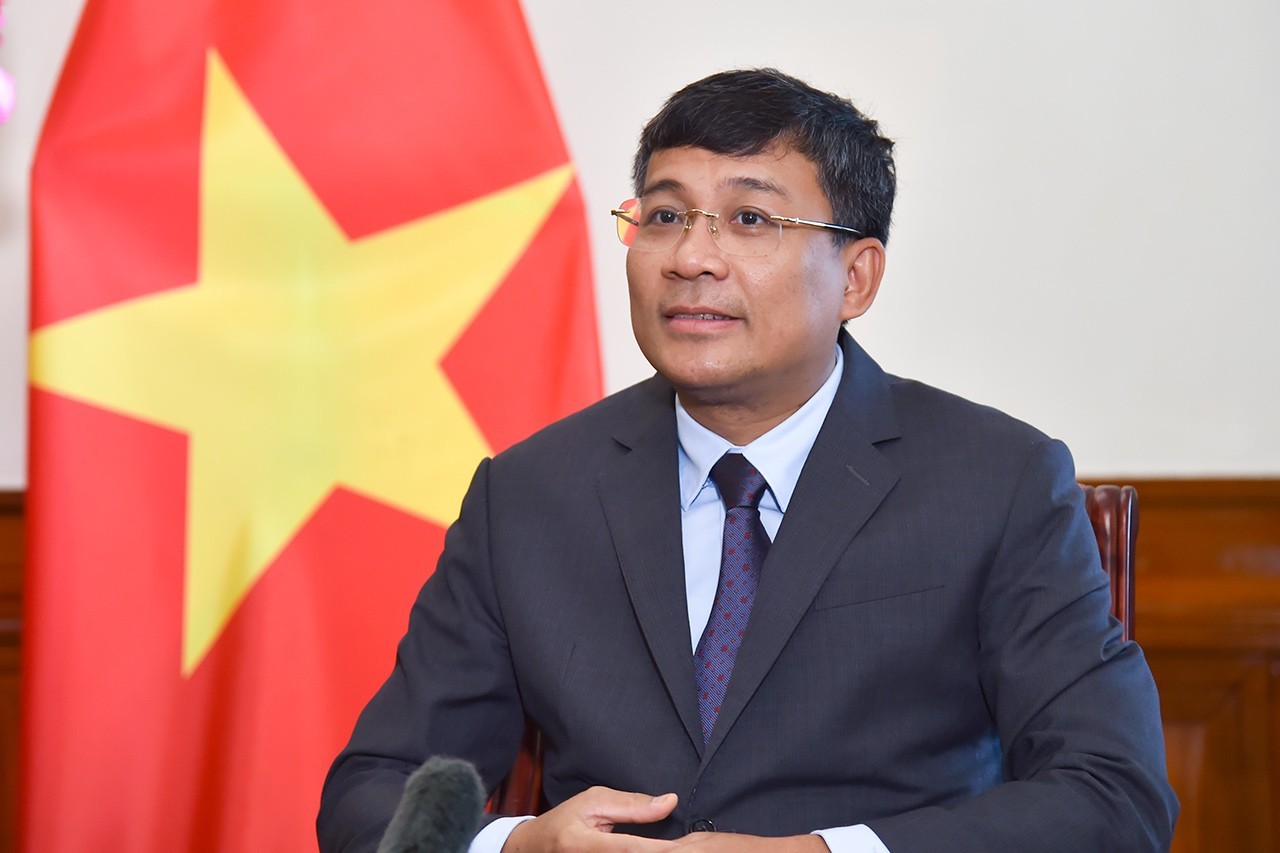International opinions regarding South China Sea dispute at ASEAN regional security conference
The conference marked the attendance of Representatives from 26 partner countries within the ASEAN Regional Forum (ARF) and the ASEAN Secretariat
Participants shared their views on the global and regional situation and the impact of the Covid-19 pandemic, affirming that no country can deal with the pandemic without cooperation in multilateral mechanisms and regional organizations.
Many concerns were raised about unilateral actions affecting regional security and stability despite the world’s efforts to fight against COVID-19.
Maintaining the South China Sea’s law and order
The law and order issue relating to the South China Sea has been raised by representatives of many countries’ defense ministries, as well as the European Union. Delegates affirmed the importance of maintaining and promoting harmony, security, stability, safety, and freedom of navigation and aviation in the South China Sea, ensuring the region’s peace and prosperity.
The importance of disputes settlement with goodwill, effective implementation of the Declaration on the Conduct of Parties in the South China Sea (DOC), and the development of COC in accordance with international law, including the 1982 United Nations Convention on the Law of the Sea (UNCLOS) has been emphasized in the conference.
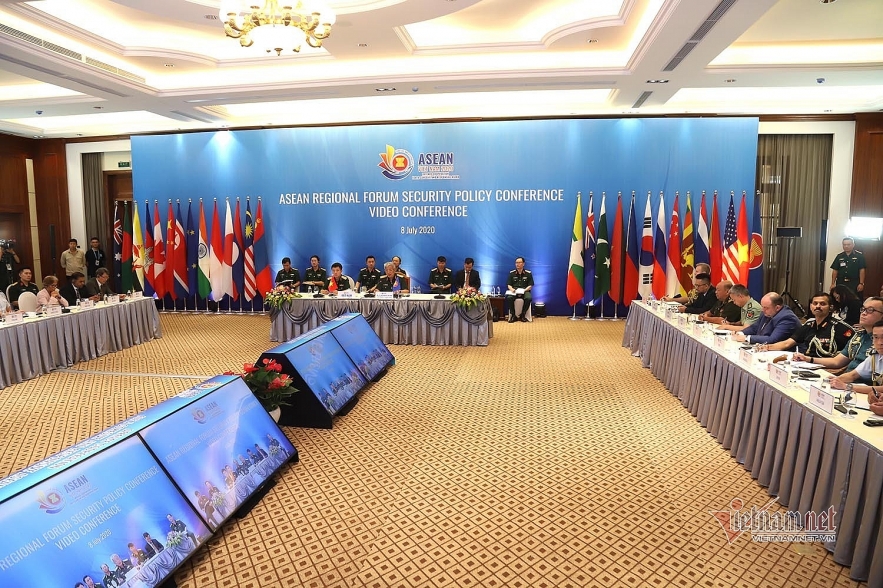 |
| ASEAN Regional Forum Security Policy Conference. Photo: Vietnamnet. |
Mr. Nishida Yasunori, Japan's Vice-Minister of Defense for International Affairs, said that solitary changes are unacceptable. This affects other countries' cooperation efforts in the context of COVID-19 pandemic.
Japan strongly supports ASEAN's stance, especially the joint statement of the leaders at the 36th ASEAN Summit, which is addressing issues in harmony, ASEAN leaders affirmed the importance of maintaining and promoting peace, in accordance with international law, including UNCLOS.
"We believe in a lawfully open South China Sea maritime order" – the Ministry of Defense representative affirmed.
The international community needs to collaborate to face these difficulties. At the same time, countries’ adherence to the resolutions of the United Nations Security Council, as well as the disarmament of weapons and ballistic missiles are of great importance.
Japan would definitely benefit from a COVID-19-free world order. However, a legitimate nonrestrictive world order which would serve as a basis for the present world needs the cooperation of nations that share the same values.
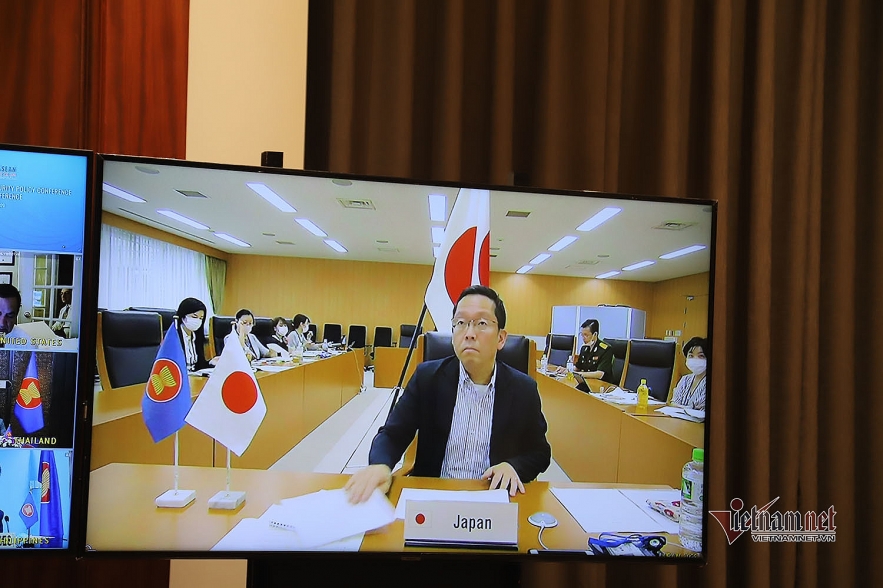 |
| Mr. Nishida Yasunori. Photo: Vietnamnet. |
Japan and ASEAN shared the same view about an open and nonrestrictive Indo-Pacific. In order to achieve this goal, Japan will foster the region’s development and prosperity. Although the COVID-19 pandemic has caused negative effects all around the world, member states’ communication has never been neglected. Free, open and transparent information about the epidemic has always been a top priority.
The EU supports ASEAN’s stance on a rules-based order
Guillaume Décot, European External Action Service, said the EU has a commitment to maintaining security and relations with countries in the region.
The EU promotes regional and global harmony through peace-keeping efforts. In 2019, the EU launched the “Security cooperation in and with Asia”, including cooperation on counterterrorism and cybersecurity.
There have recently been unilateral actions in the South China Sea which have increased tensions, affecting the regional maritime security and prosperity.
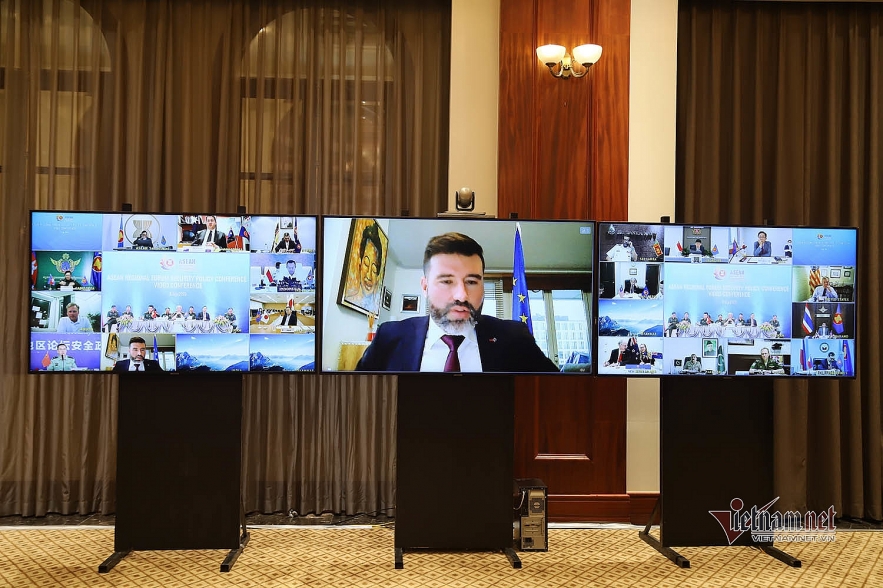 |
| The EU urges all parties to restrain and to resolve disputes in accordance with international law and the 1982 UNCLOS. Photo: Vietnamnet. |
The EU representative said that the bloc strongly opposes violent measures, he also urged parties to avoid actions that increase regional tensions. EU also supports ASEAN's view of establishing a rules-based order and governance of the sea. This is the only way to maintain trust and consensus
Mr. Mike Thompson, Director (South East Asia) International Branch at New Zealand Ministry of Defence affirmed that New Zealand encourages maintaining the region's security based on international law to ensure the construction of an appropriate order, especially in maritime matters.
New Zealand has a concern to the South China Sea as over 50% of this country’s goods travel through this area.
New Zealand also supports the mechanism that ASEAN plays a central role, as well as China and ASEAN’s efforts towards developing the COC in the South China Sea and ensuring the interests of other countries in the region.
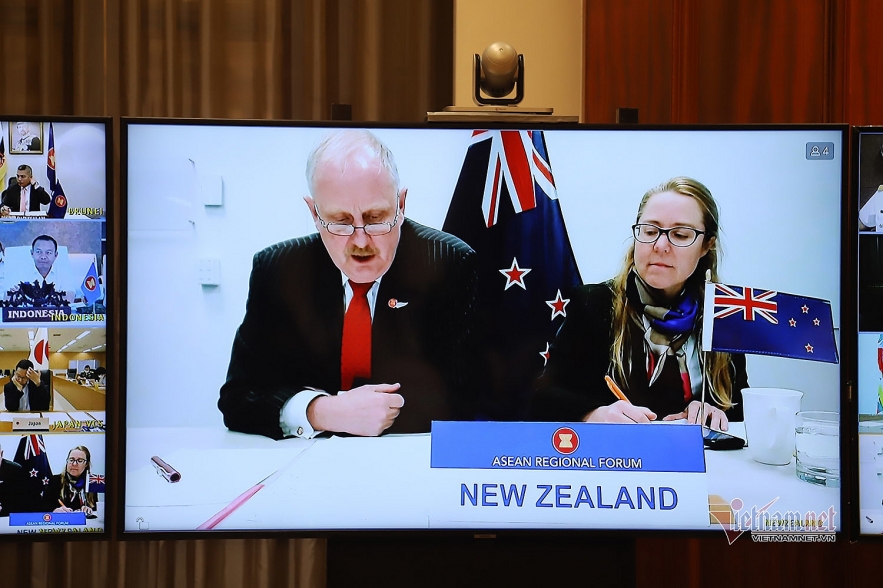 |
| Mr. Mike Thompson. Photo: Vietnamnet. |
All parties are called to restrain and resolve disagreements through peaceful measures, ensuring regional stability and prosperity, asserted the representative of the New Zealand Ministry of Defense. He also expressed his thanks to Vietnam for organizing this conference. This is an opportunity to find solutions to current challenges through negotiations.
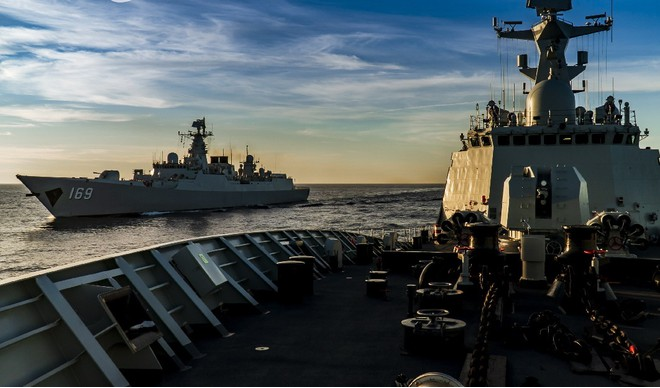 | China's simultaneous drills in 3 Asia seas while threatening that "Beijing has many anti-aircraft carrier weapons" China's Global Times reported that the East Sea (South China Sea) is entirely within the reach of the Chinese military and that Beijing possesses multiple ... |
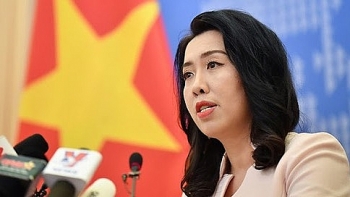 | Vietnam opposes Chinese military drills in its territorial waters in the East Sea Foreign Ministry spokesperson Le Thi Thu Hang on June 2 voices Vietnam's strong opposition to Chinese military drills in Vietnam's territorial waters in the East ... |
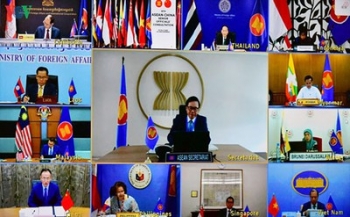 | ASEAN, China agree to go ahead with negotiations on Code of Conduct in East Sea ASEAN and China have reaffirmed their commitments to fully and seriously implementing the Declaration on the Conduct of Parties in the East Sea (DOC) and ... |
Recommended
 Seas and islands
Seas and islands
Vietnam Endorses Common Voice on Ocean Jurisdiction
 Seas and islands
Seas and islands
Dialogue as Key to Settling Disputes and Advancing Law of the Sea
 Seas and islands
Seas and islands
RoK Navy Ship Pays Friendly Visit to Da Nang City
 Seas and islands
Seas and islands
Naval Region 5 Promotes Reading Culture, Fosters Patriotism
 Seas and islands
Seas and islands
Coast Guard Region 2 Command Hosts Philippine Coast Counterpart
 Seas and islands
Seas and islands
Vietnam - Thailand Navy: Coordination to Well Address Problems at Sea
 Seas and islands
Seas and islands
Honoring the Fallen: Incense Offering for the 37th Anniversary of Gac Ma
 Seas and islands
Seas and islands

